To Foster Perseverance, Look To The Past
Christa Katsenes' life struggles are full of lessons for young people today, and she demonstrates the importance of perseverance, courage, and kindness.
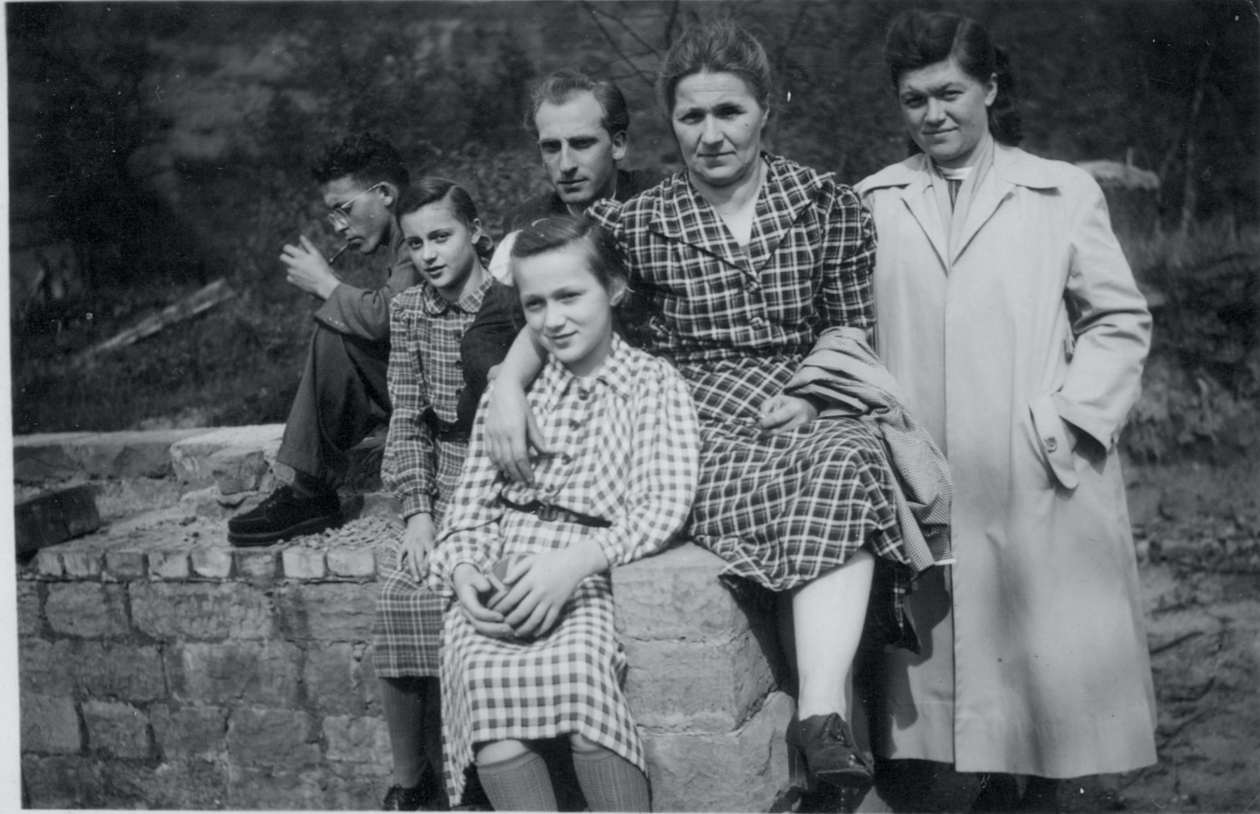
Before realization set in, the lights illuminating the German sky felt like Christmas to young Christa Hollinger.
“It made me so excited. I would see beautiful, vibrant lights up in the sky,” Hollinger, now Katsenes, recounts. “Then, all of a sudden, my parents looked very scared. They rushed my siblings and me in the house, and my father closed the curtains.”
Her imagination was quickly curtailed as the seemingly celebratory glow was revealed to have much more ominous intentions. Indeed, danger was looming. Casting their light from above were Nazi fighter pilots preparing to bomb their own land. Their attack, which aimed to destroy local infrastructure, was a desperate effort to slow the advance of the Allied troops on German soil.
“We all knew, at that moment, what was in store. We all knew that our area would be bombed,” Katsenes said.
On the very last day of World War II, a Nazi bombing of a nearby bridge left Christa Katsenes’ life forever altered. The blast demolished her house and school, resulting in the death of her youngest sister and multiple injuries, including the loss of her mother’s eye.
Growing up in Kaiserslautern, Germany, in the immediate aftermath of World War II amidst hunger and poverty, Katsenes learned the value of determination. Her father, who had actively opposed the Nazi party, taught her to always stick up for what is right no matter the risk, and throughout life, she tackled hardship with courage and optimism.
Following the bombing, she continued her education in an underground bunker and moved to America by herself without knowing the language. After learning English by watching American television and cartoons, Katsenes opened a small business as a beautician despite laws which oppressed female entrepreneurs. To support her young daughter, whom she raised by herself, she worked tirelessly at multiple jobs each day.
Christa Katsenes is a woman of strength, resilience, and true inner beauty.
I feel grateful for having such a powerful female role model in my life and for the privilege of calling her my “Oma” – the German term for grandmother.
I first met Katsenes as my neighbor at four years old, and my youngest years were marked by my moments close to her. Afternoons meant precious time sitting beside her, eating her homemade cookies, and listening to stories. She was fascinating, and I craved to hear each and every word she had to say.
One story, in particular, has resonated with me more than ever.
Nearly 80 years later, Katsenes can vividly recall an act of kindness by an American soldier — proving that benevolence never goes unnoticed. To this day, she blushes with joy whenever this moment arises in conversation.
During World War II, Katsenes remembers American soldiers stationed along German roads. They had tins of food with them, which they emptied onto blankets for German children to collect. “All the kids were running around happily, but I was shy, so I hid behind a tree and watched them,” Katsenes said.
“Then, for the first time, I saw a black man, an American soldier, who jumped off his tank with an orange in his hand,” she said while smiling. “At that time, I did not know what it was. I had never seen an orange before.”
“He came and gave it to me, and then he smiled. I believe he almost cried, and he was as happy to give it to me as I was to receive it. He was such a beautiful person,” Katsenes said.
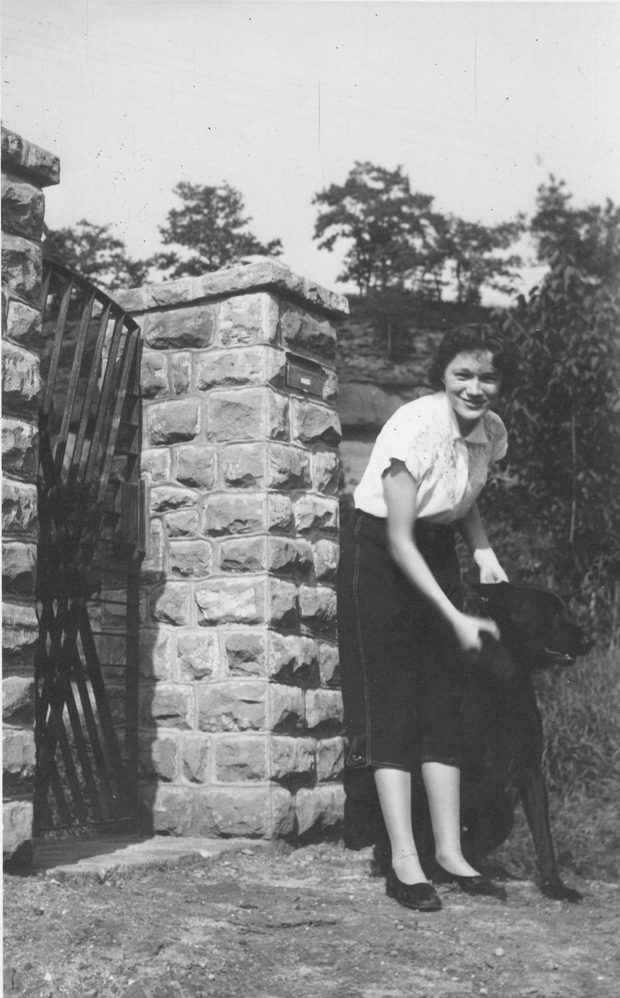
Young Katsenes poses with her pet outside of her house in America.
Young Katsenes poses with her pet outside of her house in America.
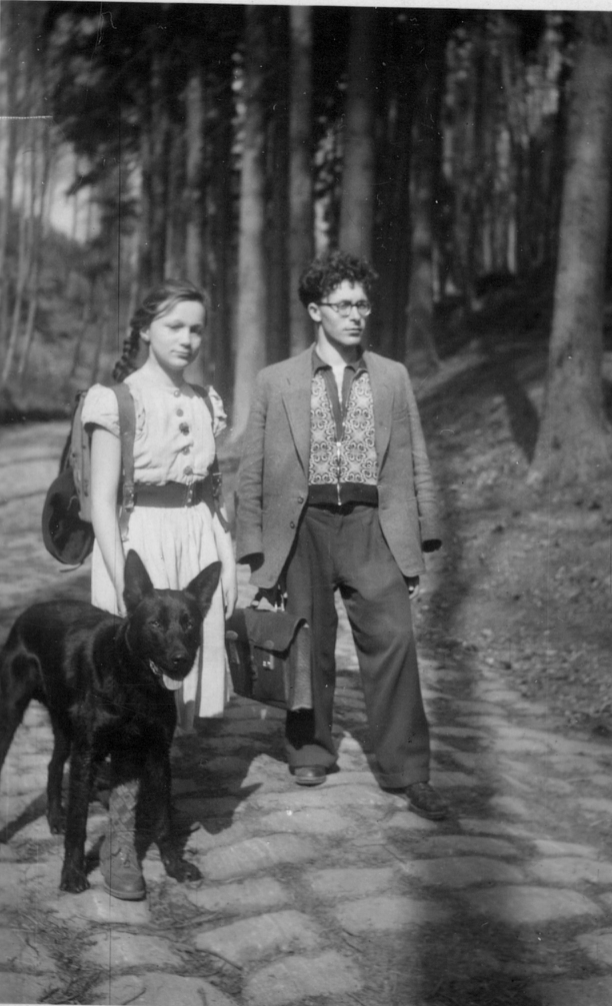
Christa and her brother walk the streets of Germany.
Christa and her brother walk the streets of Germany.
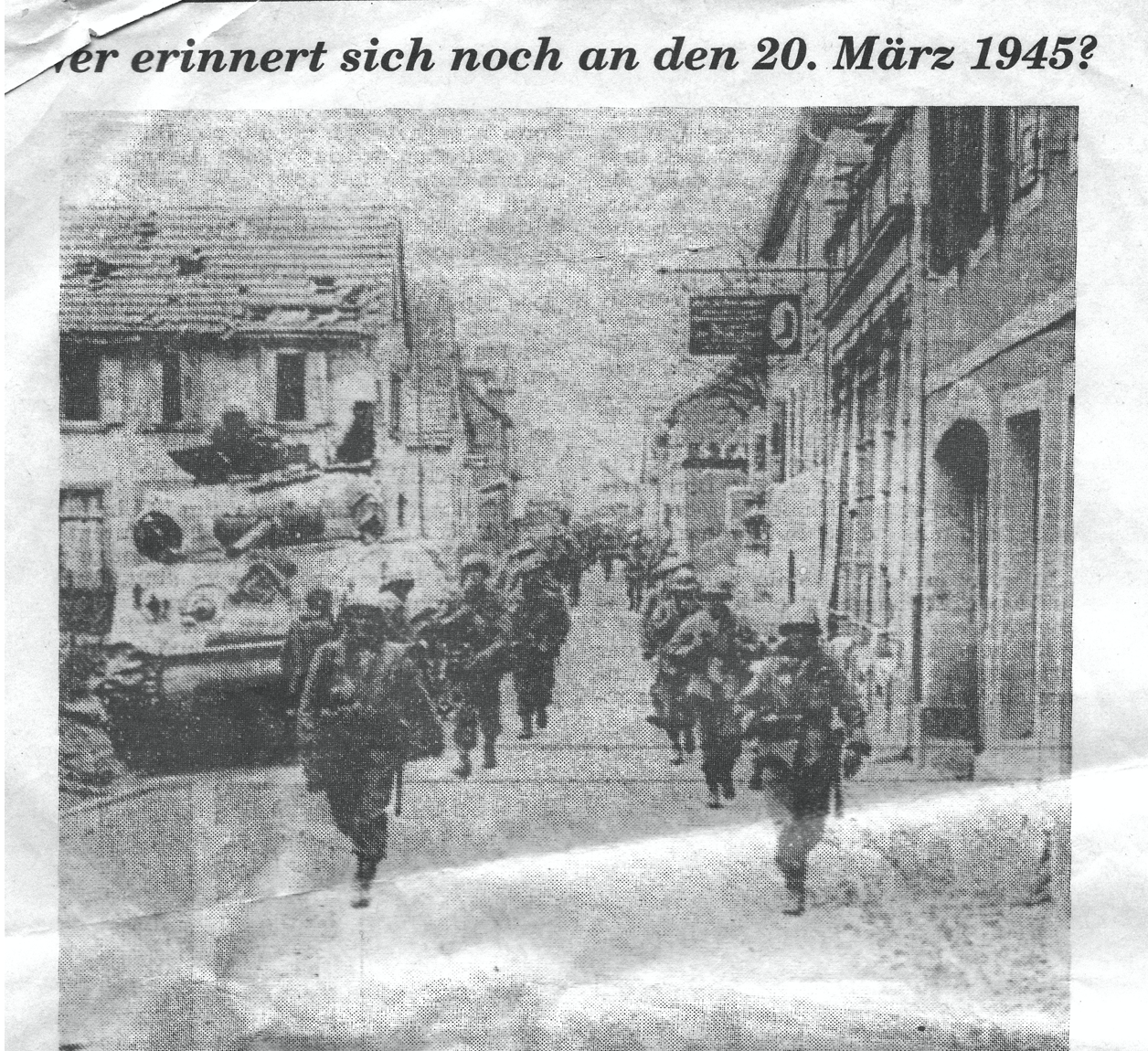
American troops march into Kaiserslautern, Germany.
American troops march into Kaiserslautern, Germany.
Katsenes speaks to the tenth-grade Modern World History Course about the solider who gave her the orange.
Katsenes speaks to the tenth-grade Modern World History Course about the solider who gave her the orange.
However, times were not always as joyous, and she emphasizes the importance of perseverance, drawing a parallel between education during the pandemic and her own education in an underground bunker.
The school—a cave in the mountains with no electricity—was far from a place that fostered education. “At the beginning, it was hard,” she said. “It was not a place of learning, but I would watch the water trickling down the stone walls and bugs crawling down.”
Despite the lack of formal classrooms, Katsenes had a passion for literature and relished every opportunity to get her hands on a book. “That is why when my daughter and my grandsons went to school, and I saw how wonderful it is with complete classrooms, books, and teachers. I was so happy I cried,” she said.
Perhaps the most pertinent lesson to today's society can be learned through the actions of Katsenes’ father, who took every opportunity he had to oppose the Nazi Party and resist their vile values.
Despite continuous Nazi harassment that endangered his life, he continued to support a local Jewish shoe store throughout the war and found joy through singing songs with his Jewish friends.
He was threatened, blindfolded, and taken away by the Nazis several times. Yet, he continued to perform small but fearless acts of resistance.
“My mother always said that if Germany had won the war, my father and our family would not have been alive today," Katsenes said. "He stood up for his beliefs and disobeyed the Nazis. He never did what they wanted him to do and never allowed my brothers and sisters to join the Hitler Youth."
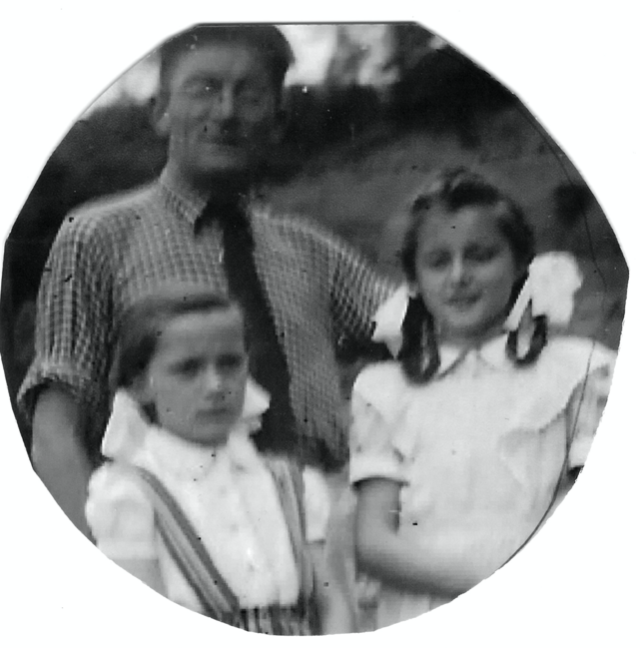
Katsenes's father, a hero, stands alongside his young daughters.
Katsenes's father, a hero, stands alongside his young daughters.
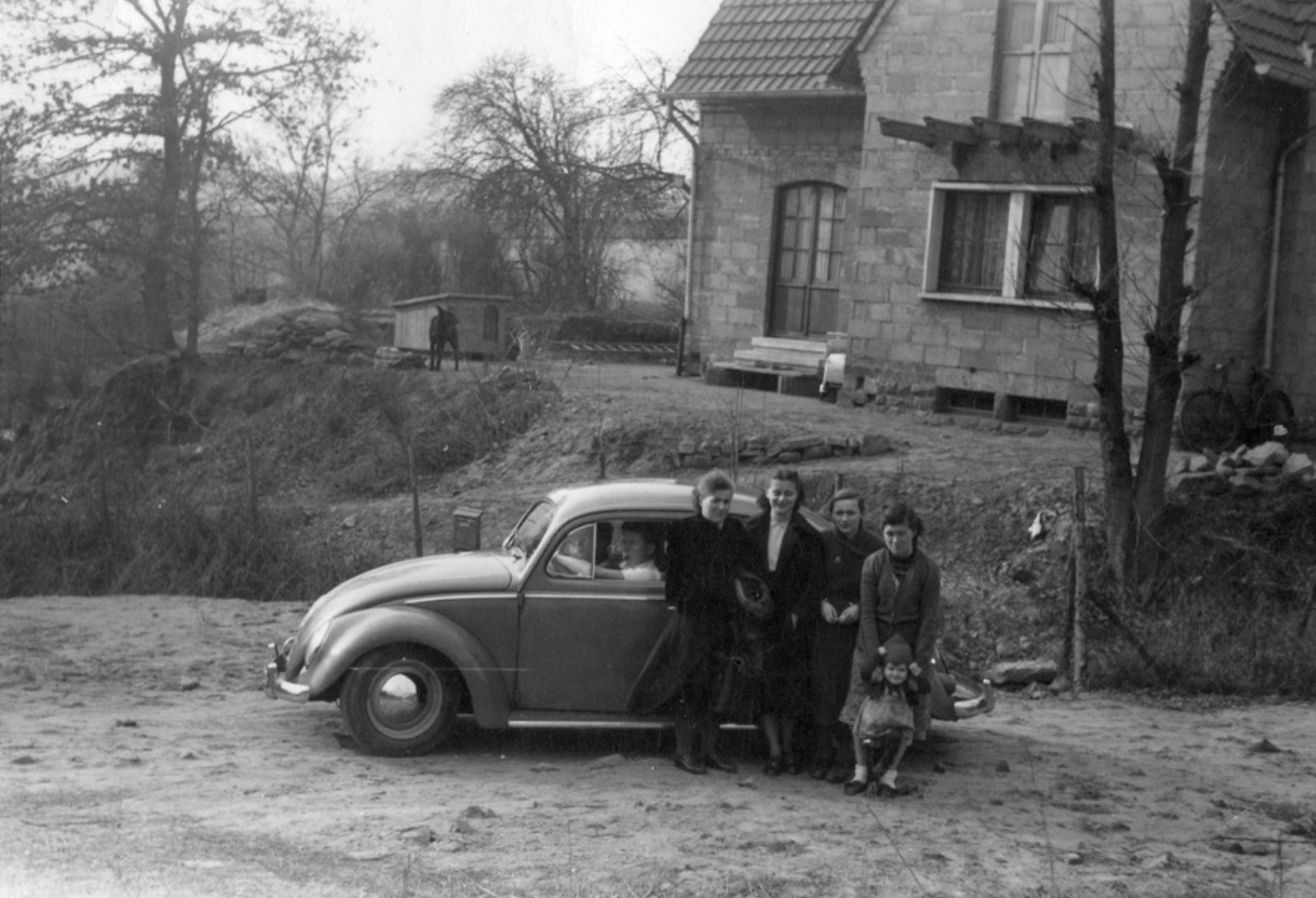
Christa's family poses in front of the house her father rebuilt after the bombing.
Christa's family poses in front of the house her father rebuilt after the bombing.
Katsenes recalls her father's experience of resisting the Nazis.
Katsenes recalls her father's experience of resisting the Nazis.
Last month, Katsenes spoke to the tenth-grade Modern World History course to culminate their studies of World War II.
Grace Kandiah ‘23 shared her appreciation for her stories: “Hearing Christa's stories was very impactful. I was so glad to see that even though she has lived through WWII, she was still very kind, full of life, and overall still seemed to have faith in humanity. Listening to her really helped me see the more human side of the war,” she said.
Every generation faces its own challenges.
Christa Katsenes' life struggles are full of lessons for young people today, and she demonstrates the importance of perseverance, courage, and kindness. Above all, her father's resistance to the Nazis is a shining example of the stamina we must have when standing up to the contemporary evil: racism, discrimination, and acts of animosity towards marginalized communities.
Over the past year—with a raging pandemic and nationwide political turmoil—we have faced a multitude of struggles. As we all cope with our own altered realities, we must remember the stories of those who have persevered through even more difficult times.
I remember Oma.
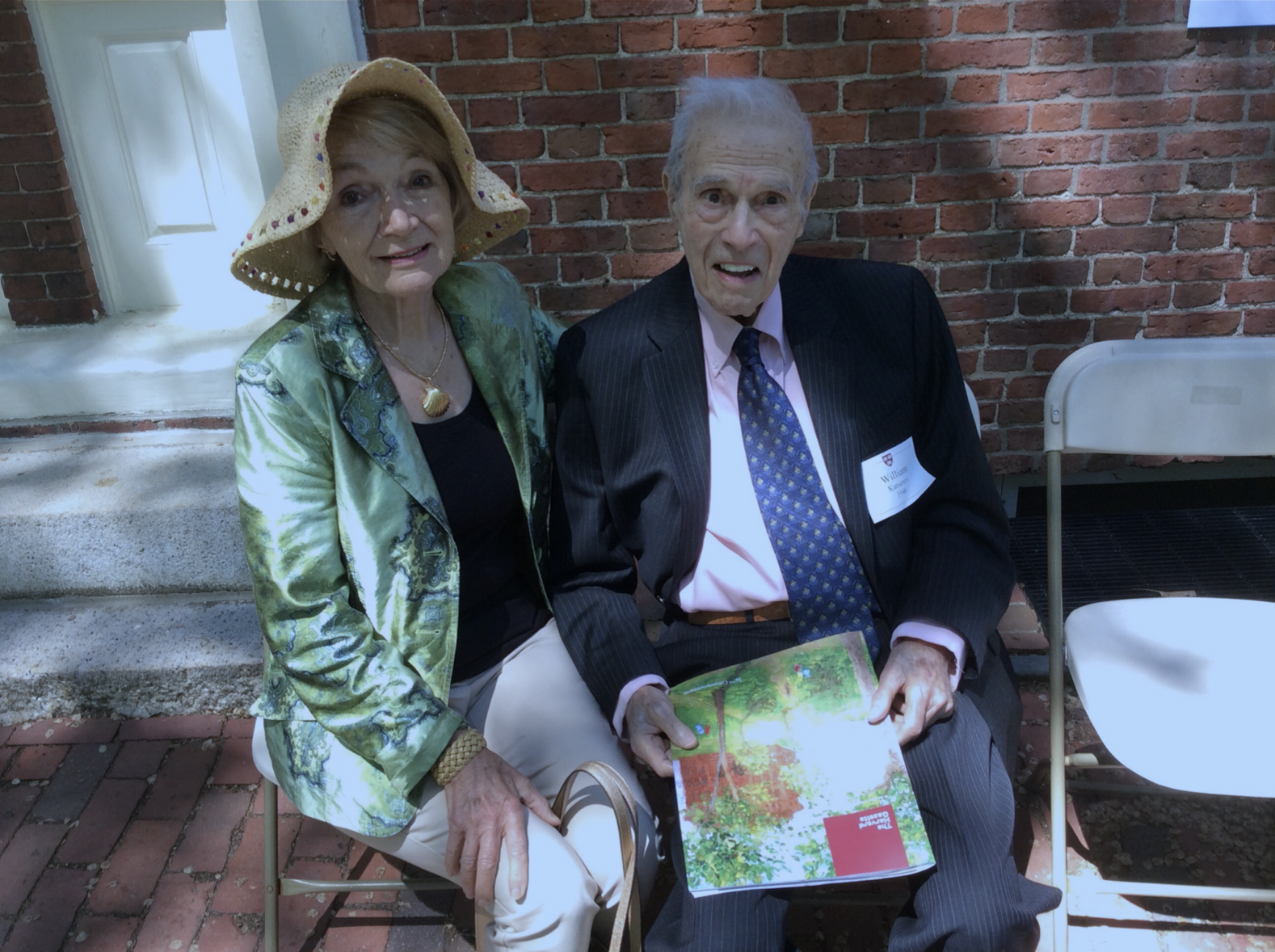
Christa sits beside her husband William Katsenes at an event hosted by Harvard University, Katsenes's alma mater.
Christa sits beside her husband William Katsenes at an event hosted by Harvard University, Katsenes's alma mater.
